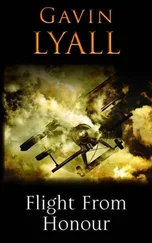When Raven first came to town, he checked in at the general store where the registration was going on; he could see the pirates’ castle on a mountain overlooking Pirates’ Plaza. It was a replica of Crevecoeur (heartbreak), the slave fort built by the Europeans on the coast of Guinea. After having his papers signed, he bought some stamps, writing paper and typewriter ribbon. He then decided to take a tour of the slave castle. The tour cost a penny.
He got lost from the main tour group and mistakenly entered an upstairs room, where Quaw Quaw lay in an old French bed underneath a canopy. She had her knees drawn up and was reading a chapbook. The poems of a New Englander. They were about lobsters, aunts and religion.
“Oh, I didn’t mean to interrupt you. I got lost from the main tour,” Quickskill said.
“Raven Quickskill,” she said.
She recognized him as the fugitive slave writer. She was always haunting the bookstalls. Next to her bed was a tray of cherrystones, eggs benedict, a tall glass of grapefruit juice and a pot of coffee. She invited him to pull up a chair next to her bed and talk to her about poetry. She had begun to back up poets at public readings with her dances. He told her about the poem he was working on, “Flight to Canada,” and how he had submitted it to Beulahland Review.
She talked about her husband and what a good man he was, even though some people libeled him by calling him a pirate; and she talked about how her husband, the pirate, had taught her to see: “I mean, really see.”
And before you knew it, they were in bed together, in this slave castle, in this warm bed covered with silk-laced blankets; in this slave castle, floors above where his ancestors rotted in chains, in this pirate’s bed, in this slave castle with its stone floors and knights’ statues. A portrait of her husband done in Rembrandt style hung above them.
Was she a roadrunner? It was hard for her to catch up, but he wouldn’t call her a turtle because when she did catch up he had to hold on to her cheeks as though they were Spirit-of-St.-Louis’ seats in Lindbergh’s plane, the only thing between him and the Atlantic. Then it was rodeo; a lot of bucking and slipping out. It had gone that way for some time until they had fallen out of touch. They had an argument about the Kansas-Nebraska Act. She said that slavery was a state of mind, metaphysical. He told her to shut the fuck up.
“I’m glad to see you, Quaw Quaw; it’s been a few years.” She stared at him, waiting for him to hurt her, but he wasn’t going to. “I see you’re backing up that pirate, Captain Kidd, and his translations of Oceanic poetry. You’re a good dancer, what are you performing behind this character for?”
He was missing her. It showed when he was missing her. Sometimes they had drunk wine together in a café at a table covered with red-and-white-checkered cloth, where the bread was served in woven baskets. They’d rendezvous every time her husband went to those conventions on trade routes he was always attending. Sometimes he was in New York, looking in on his galleries and jewelry stores.
“It’s none of your business, Raven. Times have changed. I’m not your squaw any more. And speaking of squaw, Captain Kidd was the hit of the Squaw Valley writers’ conference last year. People just adored his translations.”
She was getting mad. She was spoiled, often swimming all the way out, teasing the undercurrent of things. She played hard and came from a line of lean, hard players. Her father fought the U.S. Cavalry to a draw. Her grandfather never made peace with the white man and never surrendered and is remembered by a high boulder which sits in the middle of the Colorado River. The only real hard thing he knew about her were her nipples, hot little plums when his tongue would dart over there and give them instructions. When he was lizard-licking those titties, she’d grunt then. “You’re just not broad enough, Quickskill. You’re … you’re too … too ethnic. You should be more universal. More universal.”
“How can I be universal with a steel collar around my neck and my hands cuffed all the time and my feet bound? I can’t be universal, gagged. Look, Quaw Quaw, they want your Indian; that’s what they want, and you’re giving it to them. You’re the exotic of the new feudalism. For what Camelot can’t win on the battlefield it’ll continue in poetry. Nobody starts a war with poetry for fear of being made to look like a philistine. Look, I dip my spoon into the pot. Sometimes my shoestrings break, and I go a long time without buying new ones. I’m coarse, I’m rude, but that’s the democrat’s style. That’s why they’re calling Abe the Illinois Ape. He’s standing up to them. The South can’t continue Camelot. That’s what it’s all about. Effete men leaving the management of their plantations to uncles; the women playthings; popinjays partying endlessly, flowery waistcoats. And their poetry — gentlemen’s gardening triviality. If they love birds so much, why are they killing them off? But your friends, and their exotic dabbling — their babbas, their yogi — are on the same trip. They’re going to get your Indian and my Slave on microfilm and in sociology books; then they’re going to put them in a space ship and send them to the moon. And then they’re going to put you on the nickel and put me on a stamp, and that’ll be the end of it. They’re as Feudalist and Arthurian as Davis, but whereas he sees it as a political movement, they see it as a poetry movement.”
“There you go with that race stuff again. Politics. Race. People write and paint about politics because they have nothing else to say.”
“You’re so fucking glib. People have nothing else to do my ass. You’ve been hanging out with the Apostles of Aesthetics and you like them because you think they want to put you in a tower and fight dragons over you. You don’t look like Guenevere to me. You want some punk to strum on a mandolin some old knightly song while you flutter your eyes and sip martinis. Well, drat your universality. We slaves don’t have time to be sitting around on velvet-cushioned couches contemplating ‘dragonflies moving with the wings of gauze’ all day and shit.”
“Oh, you wouldn’t understand. You’re so … so savage.”
He turned around and hurried away. He glanced at Carpenter in the front room and pumped his hand. “Maybe I’ll run into you in Canada,” he said, but Carpenter didn’t hear him.
He was about to open the white picket gate when Quaw Quaw called, “Don’t be mad, Quickskill. Don’t leave so soon. I was just trying to communicate.”
“Communicate what?”
“You know how non-verbal I am.”
“I don’t get you. Listen, I have to go home and pack.”
“Pack? You taking a trip, Quickskill?”
“Yeah, I’m going to Canada.”
“Is that a permanent move?”
When he said yes, there was a glint of sadness in her eyes. Sure, they had discontinued their playing around, but it was nice to know that they were in the same town.
She started to pout, real cute, though she got all suffragette and curt when he called her “cute.” She held her hands behind her back and began to look disappointed. “Quickskill, there’s a den downstairs; let’s go down and have a drink. There’s a television set. I will never forget how much you like television. You would keep it on without even looking at it.”
“I’m glad to know it’s there. The world will disappear if it’s not there.”
“Come on, Quickskill.” She led him by the hand.
“I can’t stay long.”
They entered the house and walked back, passing Carpenter and his guests.
They made drinks in the den. She had a double vodka on the rocks with a twist of lemon; he, some red wine. He got up and turned on the television set. This was a nice room that Carpenter had made in the basement of his house. Around the walls were photos of African architecture. There was a conference table where he held meetings for his Carpenter Company. They restored log cabins. Not the usual log cabins but ones with space and light; peaceful log cabins. There was an educational television play on. It was being presented live from Washington. The opening shots showed dignitaries arriving. Searchlights. The carriages were pulling up, and people were standing outside the Ford Theatre.
Читать дальше












